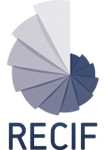EMCC
French market leader in maritime and river works.
The company EMCC is a branch of the VINCI Construction France group and is specialized in maritime and river works. The country’s main dredging company, EMCC is a market leader in the fields of maritime civil works and port developments, underwater civil works, repairs or construction of engineering works in rivers as well as the installation of ducts or outlet streams.
With a wide experience and stock of equipment which is considered as the largest in France, EMCC is not only a valuable partner for maintenance works on waterways and ports across the country, but also for the construction, creation or deepening of ports on an international level. With its integrated design and methods office, the company is able to propose clients environmentally friendly design-construction projects. The company has an annual turnover is 81 million euros and 330 employees.
http://www.entreprise-emcc.fr
Muséum National d'Histoire Naturel
(The National History museum): At the crossroads of Earth, Life and Human sciences, the museum has been dedicated to studying biodiversity and geodiversity on a daily basis for over 350 years. As a research centre, the Museum bases its work on field and laboratory studies, a multi-disciplinary approach as well as its exceptional collections – amongst the three largest in the world – and its renowned expertise. The museum’s educational work as well as its vocation to share the knowledge it has gained through its various galleries, zoological parks and botanical gardens, has become an important channel for sharing information and making the public more aware of the need to protect our planet. The Institution brings together almost 1,900 people including 500 researchers, trains around 350 students every year and houses 68 million specimens in its storage areas and galleries. Over 2 million people visit the 12 sites around France each year.
http://www.mnhn.fr/le-museum/
Plymouth Marine Laboratory
PML is an independent, impartial provider of scientific research and contract services for the marine environment, with a focus on understanding how marine ecosystems function and reducing uncertainty about the complex processes and structures that sustain life in the seas and their role in the Earth system. As a truly multidisciplinary marine research centres, PML delivers highly innovative research and solutions for national and international marine and coastal programmes. The research at PML is timely and highly relevant to UK and international societal needs and its research, development and training programmes have a mission to contribute to issues concerned with understanding global change and the health and sustainability of marine ecosystems.
http://www.pml.ac.uk
Ocean and Earth Science, University of Southampton, UK
The University of Southampton has a well established reputation for its outstanding research and degree courses in Ocean and Earth Science. Our students are based at the prestigious National Oceanography Centre Southampton (NOCS). NOCS is the integrated collaboration between the Southampton-based part of the Natural Environment Research Council’s National Oceanography Centre, and the University of Southampton’s Ocean and Earth Science. The Centre hosts one of the world’s largest groups of scientists and engineers devoted to research, teaching and technology development in ocean and Earth science. The Centre is comprehensively equipped with modern instrumentation and laboratory facilities and is also the operational base for the UK’s fleet of deep sea research vessels.
http://www.southampton.ac.uk/oes/index.page
TPC
TPC is a subsidiary company of VINCI Construction France. It’s specialized in civil engineering, maritime and port work, building, earthwork, demolition and asbestos, pipes and utilities and quarries. Located in Tourlaville, Lower Normandy, the company brings support to its customers from design to maintenance, through installation, financing and implementation. It regularly carries out precast structures of wide floating size, but not exclusively, within maritime and port projects (reefs, Jarlan Caisson, …etc). The TPC company is certified for its quality management system (ISO 90001 – 2008), its security management system (ILO – OSH 2001), work under ionizing radiation (E certification of CEFRI), for asbestos removal (ASCERT certificate). Operating throughout the western part of France, TPC claims 130 employees and a yearly 20 million euro turnover.
http://www.entreprise-tpc.fr
Université de Caen Basse-Normandie
Three research units (RU) of UniCaen are involved in the RECIF project. The CNRS INEE - FRE3484 BioMEA RU “Biology of marine molluscs and associated ecosystems”, the CNRS M2C (UMR 6143) RU“Continental and coastal morphodynamics” and the LUSAC EA 4253 RU “Applied sciences laboratory of Caen Basse-Normandie university in Cherbourg”. The RECIF project involves the FEME team (Functioning of operated marine ecosystems) of the BioMEA RU. Thisteam, specialized in the coastal ecosystems functioning, works mainly on 3 items: i: primary producers, ii: trophic interactions, iii: anthropic pressure effect. The M2C RU is interested in the ocean/continent interface from the watershed dynamics to the adjacent coastal zones evolution. One of the issues is to isolatethe impact due to natural factors from the anthropic ones and the consequences on the coastal and continental environments based on an integrated multidisciplinary approach associating mechanic-geosciences and geo-eco-microbiology and the experimental and modeling in situ approaches. LUSAC brings together complementary competences in the scientific fields of thermal and fluids mechanics, of materials for energy and electronics, and of thermal energetic systems and electrical energetic systems based on alternative energy sources (marine renewable energy, fuel cells, electrical energy storage, etc…). BioMEA and M2C are members of the CREC (Reseach center on coastal environment – Luc-sur-Mer marine station - University of Caen) which structures and means for the sea will be mobilized for the RECIF project.
http://www.unicaen.fr/

